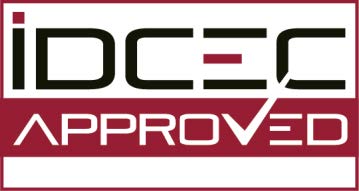
-
You must log in to register
- Guest - $59
- ASID Member - Free!
Demonstrate positive outcomes for your clients with tools and templates for pre- and post-occupancy evaluation.
Continuing Education Approvals
- 1 IDCEC CEU | HSW | CC-115532 (Your CEU will be reported to IDCEC on your behalf)
- 1 AIA LU | HSW | PREPOSTOCCUPEV (AIA Members: Please contact education@asid.org to have your completion reported or add your AIA Member number to your ASID account profile.)
Supported by

Description
As a designer, you know how important it is to solve problems for your clients through your program, based on research and evidence. Developing pre- and post-occupancy evaluations are key tools to demonstrate the effectiveness of your design outcomes. You will walk through process steps including developing owner project requirements, building a multi-disciplinary team, material program selection, and post-occupancy evaluation verification. Along the way, you will access tools and templates to help you measure your impact when working on workplace, healthcare and senior living projects.
Handouts: There are three Excel templates referenced in the course, which are available to download under the "Templates" tab after you've registered.
- Program and Design Guide: Project Template
- Program and Design Guide: Workplace Project Example
- Functional Programming and Physical Environment Design Guide: Project Template for Residential Health, Care, and Support Facilities (Senior Living)
What You Will Learn
- Recognize the importance of pre- / post-occupancy evaluation as a means for continual improvement.
- Describe the need for consistent criteria development for programming and subsequent post occupancy comparison.
- Identify the methodology behind guidance for completing a pre- / post-occupancy evaluation process.
- Utilize a programming template to glean criteria from stakeholders and establish outcomes to be measured.
Access Period: One year from registration date.

Debra Harris, Ph.D.
Associate Professor, Family & Consumer Sciences, Interior Design
Robbins College of Health and Human Sciences, Baylor University
Dr. Debra Harris is an evidence-based design researcher, product developer, and designer. She is an Associate Professor in the Family and Consumer Sciences Department in the College of Health and Human Sciences at Baylor University and a Fellow of the Center for Health Systems & Design at Texas A&M University. Current and recent research involves biological and chemical contamination and transmission by finish material and the spread of pathogens in the built environment.

Jane Rohde, ASID, AIA, ACHA, CHID, LEED AP BD+C, GGA-EB, GGF
Principal
JSR Associates
Jane Rohde, ASID, AIA, ACHA, CHID, LEED AP BD+C, GGA-ED, GGF champions a global cultural shift toward de-institutionalizing senior living and healthcare facilities through her practice, person-centered principles, research and advocacy, and design of the built environment. She is the principal of JSR Associates, Inc., which she formed in response to the gap between outcomes, operations, and design of the physical setting. Her projects include Cypress Garden Senior Living, China’s first resident-centered care community; the Live Together, Inc. Intergenerational Community, an intentionally designed multi-generational setting that will support person-centered care including educational training and research programs; and Bastion Community of Resilience in New Orleans, an intentional community for Wounded Warriors, their families, retired veterans, and civilians.

This CEU is registered with the International Design Continuing Education Council (IDCEC) for continuing education credits. This credit will be accepted by the American Society of Interior Designers (ASID), International Interior Designers Association (IIDA) and Interior Designers of Canada (IDC).
The content included is not deemed or construed to be an approval or endorsement by IDCEC of any material or construction or any method or manner of handling, using distributing or dealing in any material or product.
Questions related to specific materials, methods and services should be directed to the instructor and provider of the CEU.
This program is registered for 1 CEU value | HSW. The IDCEC class-code is: CC-115532.
Attendees who do not belong to ASID, IIDA or IDC and do not have a unique IDCEC number will be provided with a Certificate of Completion after this CEU.
